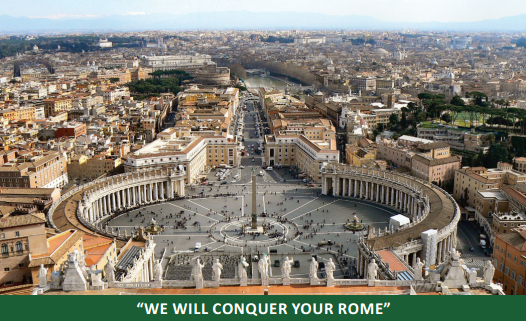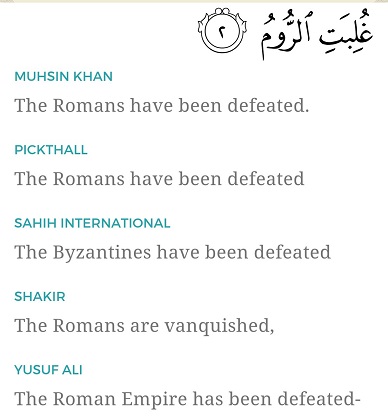[ by Charles Cameron — on Graeme Wood’s latest, the goals of IS, and geographic slippage ]
.
Graeme Wood, who wrote the Atlantic piece that broke the apocalyptic side of the Islamic State’s ideology wide open in March of last year, has a related piece out this month: Donald Trump and the Apocalypse, with the subtitle, Is Rome really ISIS’s “ultimate trophyâ€? It’s a fun read, discussing the confusion that is possible over the use of the word Rome in Muslim prophetic literature — a topic I’ve discussed before.
Just for the record, then, here’s a screengrab from the Islami State’s magazine Dabiq, issue 4 page 37:
**
As a Newsweek item from September 2012 notes, there have in fact been three claimants to the title of Rome:
When Ivan the Terrible was crowned the first Tsar of All Russia in 1547, the church announced Moscow to be the “Third and Final Rome,†the inheritor of St. Peter’s Rome and Byzantium, and the last bastion of Orthodox Christianity standing up to a Europe mired in heresy.
Russian commentator Yuliya Latynina quoted..
Filofey of Pskov’s 1510 claim that “Two Romes have fallen; the third stands; and there will not be a fourthâ€
This was in Novaya gazeta, February 2015, and she suggested that Russia..
many of whose residents view it as the third Rome, may suffer the fate not of the first Rome but of the second, a fate that cannot be reassuring to many of them because in the end the residents of the second Rome in Constantinople “considered that Islam was better than the West.â€
Wood mentions in his piece that the Australian jihadist ideologue Cerantonio argues:
The Rum of the end-times hadith is not the Rome of Pope Francis but the Rome of the Republic of Turkey.
Putin might take offense if he knew..
**
And then there’s the matter of Quranic translation and the Quranic verse 30.2, as Wood also notes:
Arberry, always interesting to read, translates that verse:
The Greeks have been vanquished.
The historical commentary in The Study Quran, p 984-85, clarifies that this verse refers to Sassanid (Magian) successes against the (Christian) Byzantine empire — which the following verse says will be reversed — and terming it “the only reference in the Quran to political events conetemporary with Muhammad and his followers beyond the Arabian Peninsula”.
**
All things considered, oy veh: it seems that history does strange things to geography, time to space.




